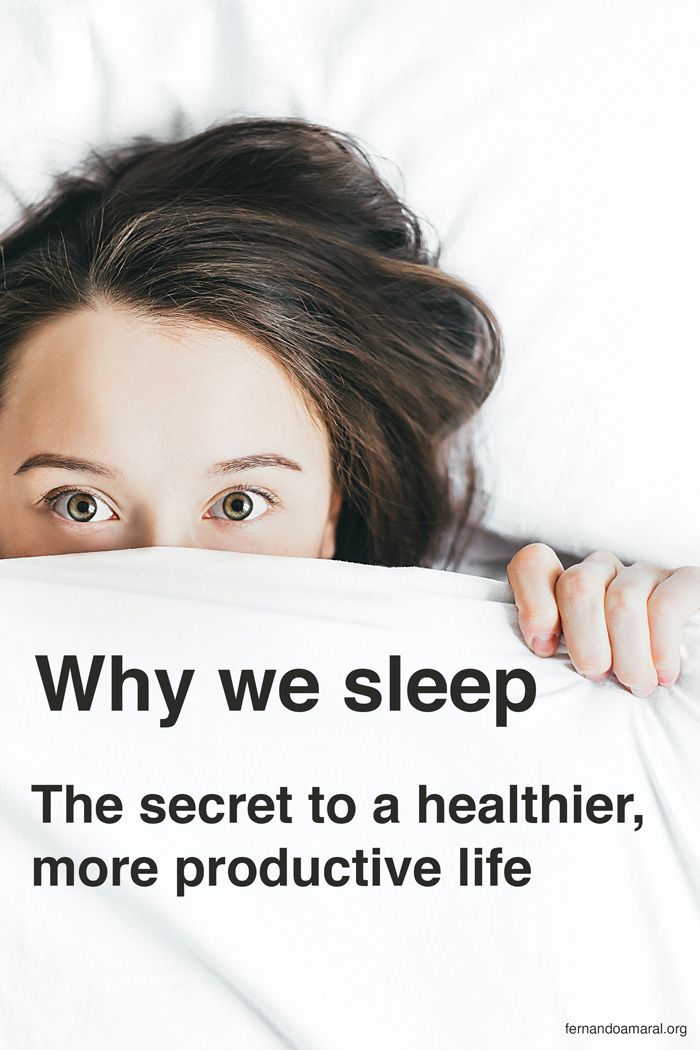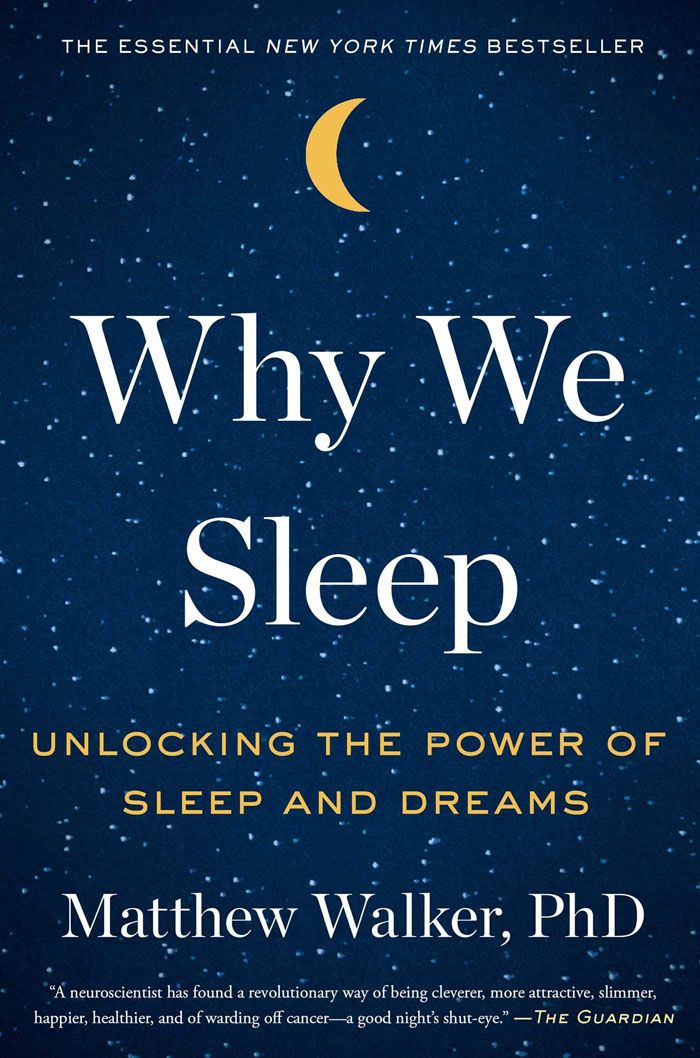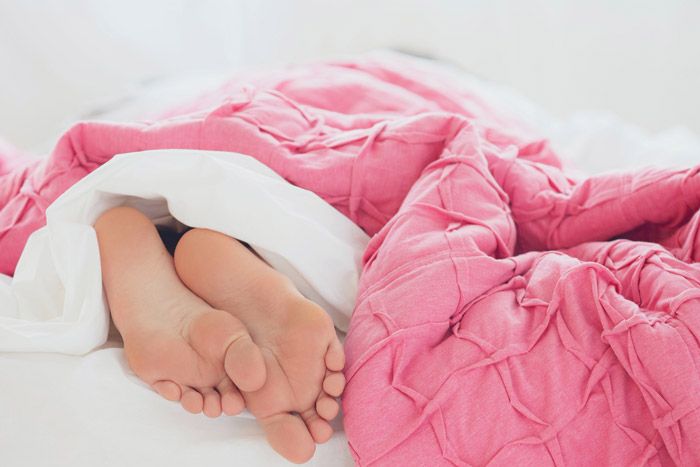Why we sleep: The secret to a healthier, more productive life
In Why We Sleep (Unlocking the Power of Sleep and Dreams), the author warns us about a dangerous global epidemic: sleep loss. The book and all the research it exhibits had a profound effect on how I think about sleep.

Did you know that every year there is a global experiment on the effects of sleep deprivation?
Okay – it’s not an actual experiment. I'm talking about the switch to daylight savings time in March, which results in most people in the Northern Hemisphere losing one hour of sleep. No big deal, you might think.
As it turns out, it is a big deal. Researchers have discovered that this seemingly trivial sleep reduction comes with a spike in heart attacks and traffic accidents the following day. And what happens in the fall when the clocks move in the other direction? Just the opposite. Heart attacks and traffic accidents both decline on the day after everyone had the opportunity to get an extra hour of sleep.
I’ve found out about this fact while reading a book by neuroscientist and sleep expert Matthew Walker called Why We Sleep (Unlocking the Power of Sleep and Dreams), which I discovered through Bill Gates's recommendations.
In his book, Walker warns us about a dangerous global epidemic: sleep loss. Several aspects of modern life have contributed to our current state of sleep deprivation - defined as sleeping less than seven hours a night.
The book and all the research it exhibits had a profound effect on how I think about sleep. In this article, I want to share the main insights I took from it, particularly on how it relates to work.

Memory, productivity, and creativity
People in a variety of careers tend to share how little they sleep as a badge of honor. They believe that being busier and working harder is the path to success. There is only one problem with this approach – science says it does more harm than good.
If you have been robbing yourself of sleep to keep more time available for work pursuits, you are almost certainly hurting yourself and your goals. No matter what kind of work you do, getting good sleep is fundamental.
This is particularly true when you work in fields that require learning, creativity, and problem-solving - all of which benefit from the correct amount of sleep.
A quote from the book should make you consider your choices when it comes to sleep and productivity.
“Under-slept employees are not going to drive your business forward with productive innovation. The irony that people miss is that when you are not getting enough sleep, you work less productively and thus need to work longer to accomplish a goal. That means you often must work longer and later into the evening, arrive home later, go to bed later, and need to wake up earlier, creating a negative feedback loop.
People often tell me that they do not have enough time to sleep because they have so much work to do. Without wanting to be combative in any way whatsoever, I respond by informing them that perhaps the reason they still have so much to do at the end of the day is precisely that they do not get enough sleep at night.”
Perhaps you don't believe this problem applies to you, but people generally do a terrible job estimating how much they are affected by not getting enough sleep. When asked how impaired they were, participants in sleep deprivation experiments consistently underestimated their degree of performance disability. You may not understand what lack of sleep is taking away from you.
Rather than seeing sleep as the thing that you skip out on to do more work, you should see it as the thing you invest in to make more and better work possible.
Just like you invest in education and training to further your career, so too should you invest in the time needed to get plenty of rest.
You can't hack sleep
It’s well-known that your body goes through various stages of sleep during the night. The stages are NREM (1 to 4) and REM. NREM stages 3 and 4 are also known as deep sleep, while REM is associated with dreaming.
Sleep hackers may try to select which stage of sleep is more important to them and figure out how to jump straight into it, bypassing the less important ones and thus saving time that can be spent awake.
If that sounds attractive, I have bad news for you. Each stage of sleep offers a different value to the body and mind.
“NREM sleep helps transfer and make safe newly learned information into long-term storage sites of the brain.
But it is REM sleep that takes these freshly minted memories and begins colliding them with the entire back catalog of your life’s autobiography. These mnemonic collisions during REM sleep spark new creative insights as novel links are forged between unrelated pieces of information. We can awake the next morning with new solutions to previously intractable problems.”
The lesson here is simple – don’t try to hack your sleep. Embrace the value of a complete night of sleep and do your best to get ample rest night after night.
Power naps work
Naps aren’t just for kids. Adults benefit from the power of getting some sleep in the middle of the day as well. You can improve your performance significantly simply by taking a quick nap to recharge.
Walker's research notes that “naps as short as twenty-six minutes in length still offered a 34% improvement in task performance and more than a 50% increase in overall alertness.”
If you find yourself struggling with fatigue and a lack of focus during the middle of the day, think about ways you might be able to take a short nap.
It’s important to remember the previous point and note that these naps do not replace the need to get your regular night of sleep. You will always need great nighttime sleep, but you can complement it with power naps when possible.
Night owls suffer the most
Some people are naturally more inclined to sleep later than others. Based on the structure of our society, from school to the workplace, night owls face an uphill battle.
“Owls are more chronically sleep-deprived, having to wake up with the larks, but not being able to fall asleep until far later in the evening. Owls are thus often forced to burn the proverbial candle at both ends. Greater ill health caused by a lack of sleep, therefore, befalls owls, including higher rates of depression, anxiety, diabetes, cancer, heart attack, and stroke.”
Lost sleep is lost forever
Have you ever thought about not sleeping much during the busy work week, only to make it up on the weekend? It’s an appealing concept, but unfortunately, it doesn’t work.
You can't recover lost sleep in that way – once you have missed an opportunity to sleep, the damage is done. For example, if you lose the chance to consolidate what you've learned during the day with a good night of sleep, you can't recover it even if you get a lot of sleep a few days after.
By alternating between little sleep during the week and a good amount of sleep on the weekend, not only will you not recover the lost benefits, but you will also struggle to create a reliable sleeping routine.
Lack of sleep is a health issue
Matthew Walker talks about a pandemic because he believes that poor sleep is the root cause of many serious health issues.
“Routinely sleeping less than six or seven hours a night demolishes your immune system, more than doubling your risk of cancer. Insufficient sleep is a key lifestyle factor determining whether or not you will develop Alzheimer’s disease.
Inadequate sleep—even moderate reductions for just one week—disrupts blood sugar levels so profoundly that you would be classified as pre-diabetic. Short sleeping increases the likelihood of your coronary arteries becoming blocked and brittle, setting you on a path toward cardiovascular disease, stroke, and congestive heart failure.”
We can debate to what extent lack of sleep causes different illnesses, but I believe it's common sense that sleeping well correlates with living a healthy life.
What I would like you to take away from this book is that trading some health for some productivity by sleeping less to work more hours is not only a health hazard, it doesn't work. Your health will suffer, and your productivity will decrease. It's a lose-lose situation.
How to sleep better
Now that you're convinced to invest in better sleep, what practical steps can you take to get there?

First, you should understand how the body controls your drive to sleep and to stay awake. The two processes involved are sleep/wake homeostasis and the circadian biological clock.
With sleep/wake homeostasis, the longer you are awake, the greater your body senses the need to sleep. In parallel, your circadian biological clock causes highs and lows of sleepiness and wakefulness throughout the day.
The solution to getting consistently good sleep is going to vary from person to person, but the list below highlights some important ideas to consider:
- Set a schedule. Go to bed and wake up at roughly the same times each day. Don’t break this pattern on the weekend.
- A cool room. If possible, set your bedroom to be relatively cool at night.
- Turn of your devices. Turn off your various screens roughly an hour before you plan to go to bed. Android and iOS devices have specific functions to help you achieve this.
- Get up if needed. When you find yourself lying in bed but not falling asleep, get up and do something quiet for a few minutes until you feel like going back and trying again.
- Watch what you drink. Try to cut off your caffeine consumption relatively early in the day so it can work through your system before bedtime. Also, avoid going to bed tipsy, since alcohol is a sedative and being sedated is not the same thing as sleeping.
Just read the book
If you've made it until here, you should go ahead and read Why We Sleep. The book goes into great detail on all of these topics and others that I've left out.
I’m not preaching to you as someone who has always had great sleep habits. I haven’t. I broke all the sleep rules in the book constantly in my 20s, for work and pleasure. But I’m in my 40s now, and I no longer feel motivated to give up my sleep as I did before.
The saying that “I'll sleep when I’m dead” is misguided. If you take on this approach to sleep, the quality of your days will be significantly degraded, and your final rest will likely arrive sooner than it should.
I gave Why We Sleep a 5-star rating and encourage anyone remotely interested in this topic to give it a read. It has the potential to change your life for the better.
And as the author says, even if you don't enjoy it, it will help you fall asleep.
